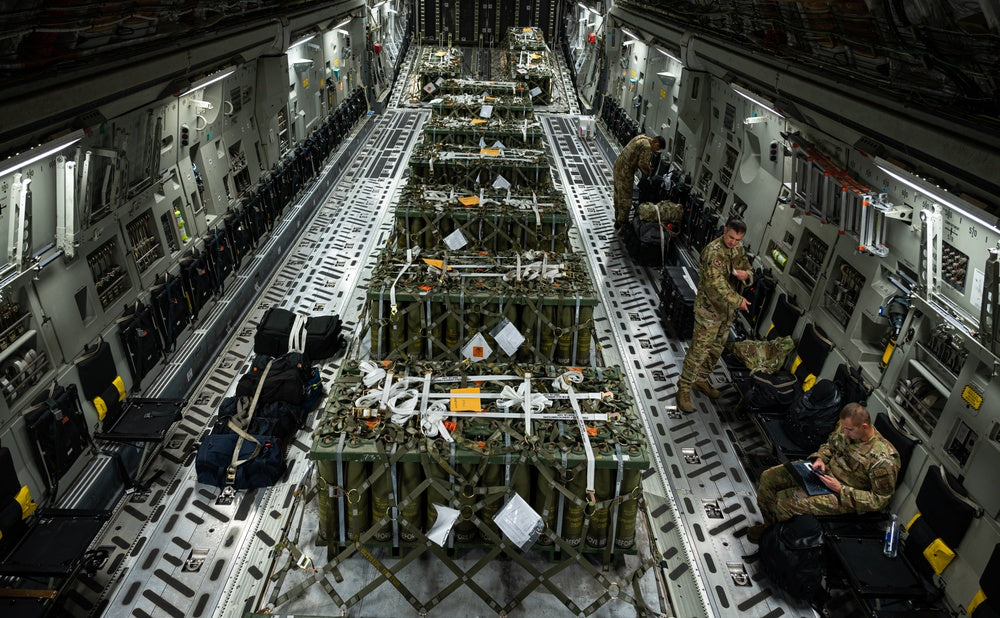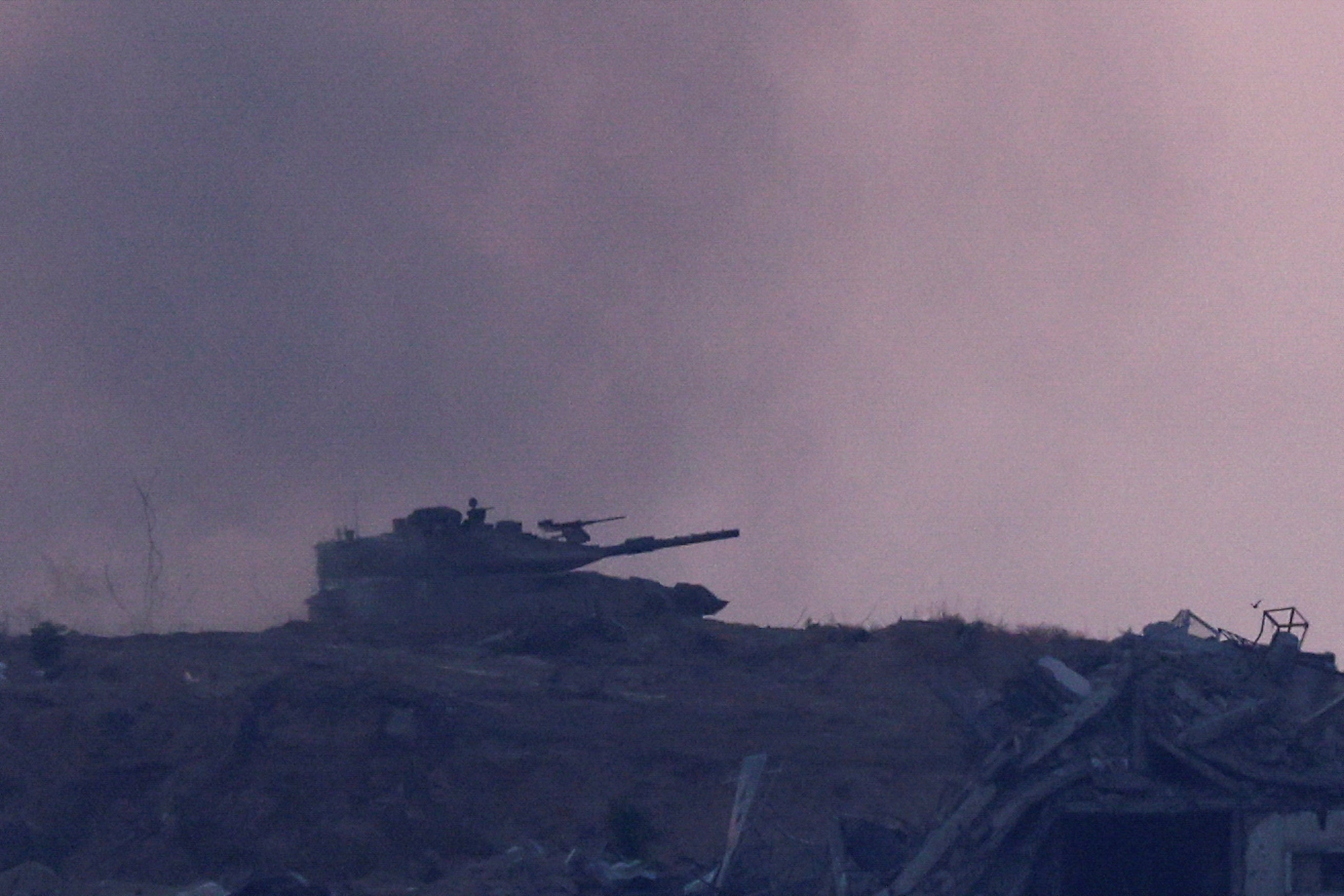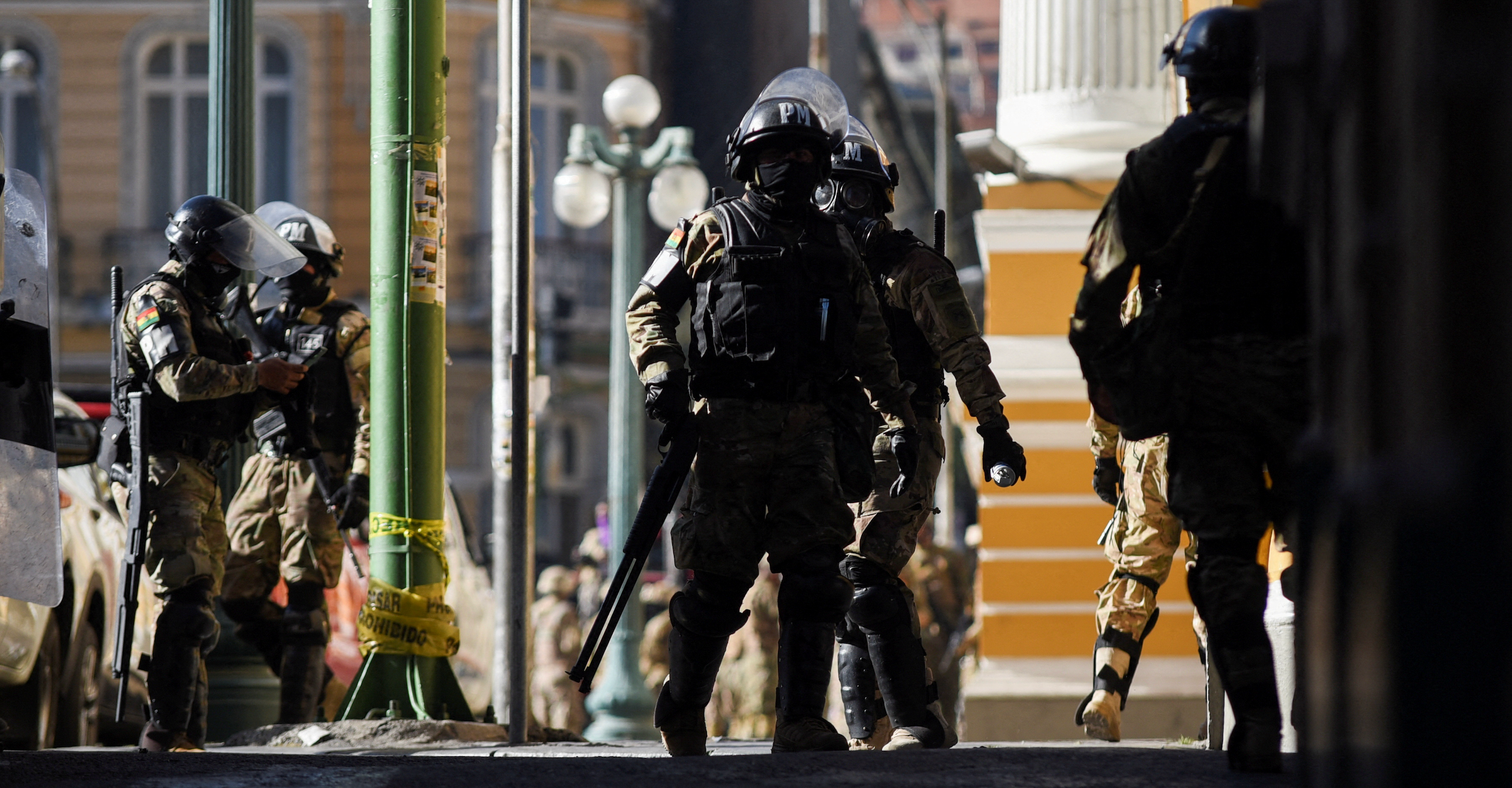
US keeps pause on one bomb shipment to Israel while it is under review
PHOTO CAPTION: U.S. Air Force Airmen prepare to transport munitions bound for Israel, Oct. 15, 2023, at Ramstein Air Base, Germany. (U.S. Air Force Photo by Senior Airmen Edgar Grimaldo via U.S. Defense Visual Information Distribution Service)
By Matt Spetalnick and Steve Holland
WASHINGTON (Reuters) -U.S. President Joe Biden's top aides told the visiting Israeli defense chief this week that Washington is maintaining a pause on a shipment of heavy bombs for Israel while the issue is under review, a senior U.S. official said on Wednesday.
The official, briefing reporters about national security adviser Jake Sullivan's meeting with Defense Minister Yoav Gallant, said the allies remain in discussions about the single shipment of powerful munitions, which was paused by Biden in May over concerns they could cause more Palestinian civilian deaths in Gaza.
Without providing specifics, the official said other U.S. weapons will continue to flow to Israel as it battles Hamas militants in Gaza and faces Lebanese Hezbollah fighters on its northern border, where increased hostilities have spurred fears of a wider regional conflict.
Gallant warned during his visit that Israel was capable of taking Lebanon "back to the Stone Age" in any war with Iran-backed Hezbollah but stressed that his government prefers a diplomatic solution being pursued by the United States.
Wrapping up his trip, Gallant said on Wednesday that there had been significant progress on the issue of U.S. munitions supply to Israel, adding that "obstacles were removed and bottlenecks were addressed."
Gallant and U.S. officials sought to cool tensions following Prime Minister Benjamin Netanyahu’s recent claims that Washington was withholding weapons, prompting Biden's aides to express disappointment and confusion over the Israeli leader’s remarks
The United States in May paused a shipment of 2,000-pound and 500-pound bombs due to concern over the impact they could have in densely populated areas in Gaza in the war that began with Hamas' deadly Oct. 7 cross-border raid. But Israel is still due to get billions of dollars worth of other U.S. weaponry.
"We are in discussions ultimately to find a resolution," the senior U.S. official said on condition of anonymity. "But I think the president has expressed his concerns about that one shipment, and those are very valid concerns."
The official acknowledged there have been “bottlenecks” in some weapons deliveries to Israel but attributed that to a “complicated bureaucratic system” for approving military assistance and not any deliberate slowdown.
ISRAEL-LEBANON BORDER
Gallant said he also discussed with U.S. officials the need to resolve the "security situation in the north," insisting that Israel cannot accept Hezbollah "military formations" on the border with Lebanon.
An exchange of shelling and missile strikes has led to the evacuation of tens of thousands of people on both sides, and escalation has sparked fears of an all-out war.
"We do not want war, but we are preparing for every scenario," Gallant told reporters.
Gallant said he also laid out to U.S. officials a three-level "day after" proposal for governance of post-war Gaza that would include local Palestinians, regional partners and the U.S., but not Israel or Hamas. He offered reporters few specifics, however, and said "it is a long and complex process that depends on many things."
The Biden administration has repeatedly urged Israel to craft a realistic post-war plan for Gaza, warning the lack of such an arrangement could trigger chaos.
Gallant said he also discussed Israel's transition to the next phase in Gaza. The Israeli military says it is preparing to shift to lower-intensity operations against Hamas' remaining fighters.
Another focus of Gallant’s meetings was Iran, Israel’s regional arch-foe.
While Israel has expressed increasing alarm over Iran's nuclear program, the U.S. official cited intelligence assessments that Tehran is not "currently pursuing the procedures and processes they would need to develop an explosive nuclear device." But the official added that Iran had taken some "provocative steps" recently.
The U.S. and Israel, the official said, are working to reschedule a strategic dialogue on Iran. A meeting set for last week was scrapped following Netanyahu's criticism.
Iran says its nuclear program is solely for peaceful purposes.
(Reporting By Matt Spetalnick and Steve Holland, additional reporting by Katharine Jackson; editing by Chris Reese, Diane Craft, Cynthia Osterman, Sonali Paul and Michael Perry)









